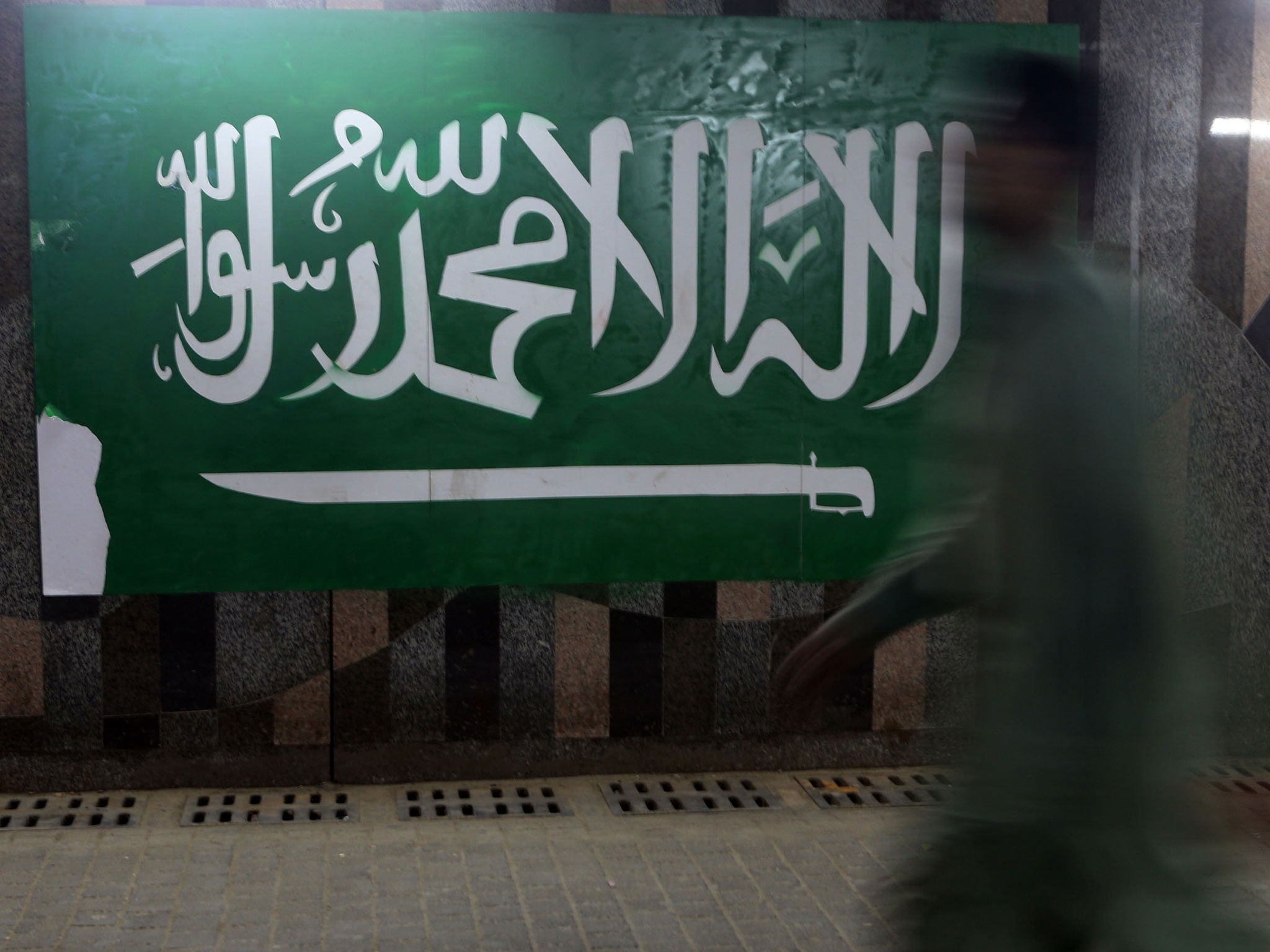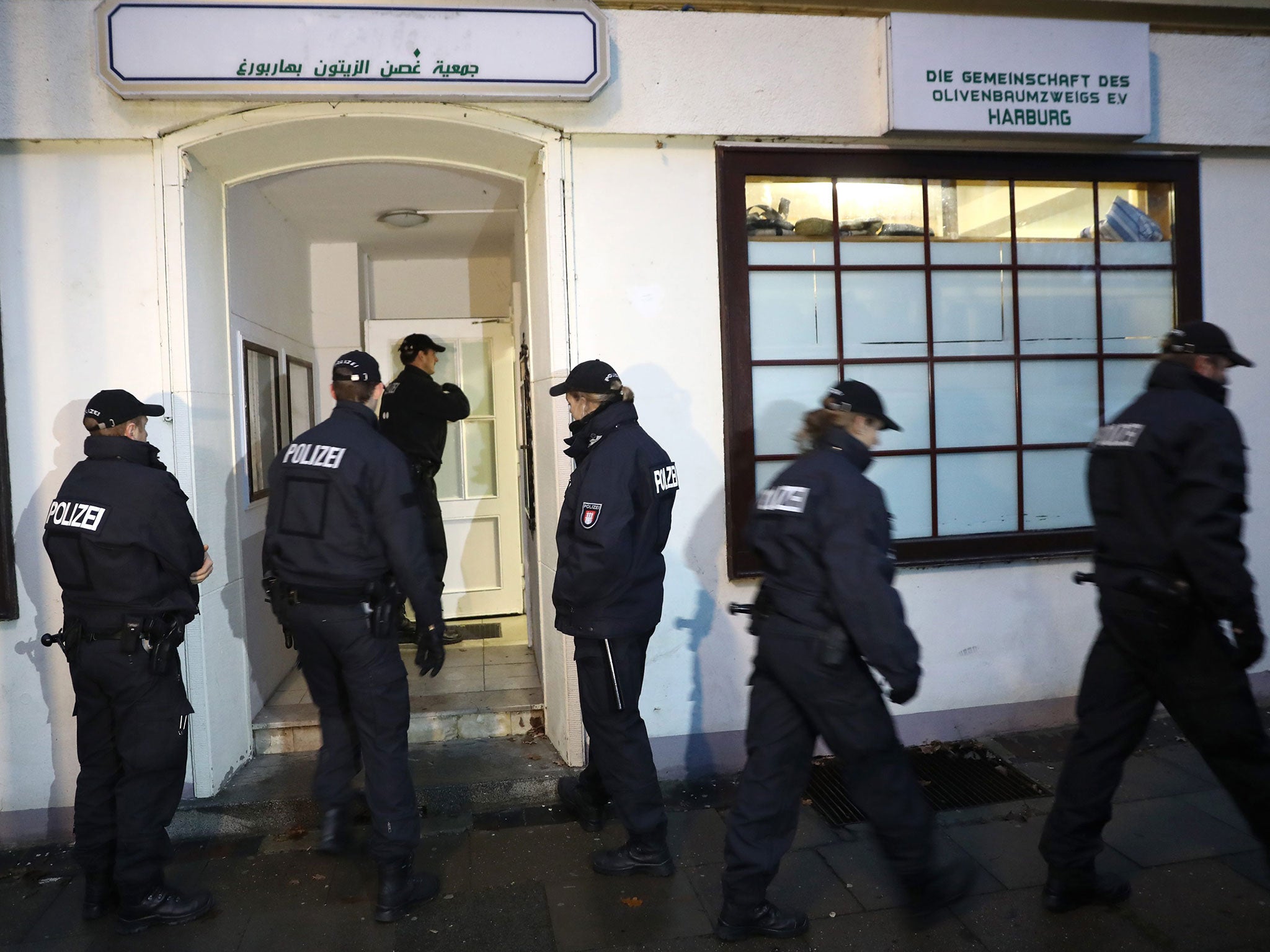Saudi Arabia and Gulf states 'support Islamic extremism in Germany,' intelligence report finds
Saudi Arabia's ambassador to Germany denies his government funds extremist groups

Saudi Arabia, Kuwait and Qatar are supporting extremist Islamic groups in Germany, according to a leaked intelligence report.
A brief seen by the Süddeutsche Zeitung and broadcasters NDR and WDR raised concern over a reported increase in support for fundamentalist Salafism in Germany, warning that the ideology already has 10,000 followers and is growing.
The report, by Germany’s BfV domestic intelligence agency and Federal Intelligence Service (BND) reportedly accused Gulf groups of funding mosques, religious schools, hardline preachers and conversion or “dawah” groups to spread the ideology.

Missionary movements were part of a “long-running strategy to exert influence” by the three states, it found, naming the Saudi Muslim World League, Sheikh Eid Bin Mohammad al-Thani Charitable Association and Kuwaiti Revival of Islamic Heritage Society (RIHS), which has been banned by the US and Russia for allegedly supporting al-Qaeda.
The report said all three organisations were “closely connected with government offices in their home countries”.
The BND and BfV have not confirmed the accuracy of leaked excerpts but sources told Deutsche Welle that some members of the security community believe it was internally leaked to pressure the German government into stopping controversial arms sales to Saudi Arabia.
The country’s ambassador to Germany, Awwas Alawwad, rejected accusations of supporting Salafism, saying his government does not build mosques or export imams and has “no connection with German Salafism”.
He added that the Muslim World League was not a Saudi government organisation and discontinued activities in Germany in 2013.
The Sheikh Eid association and RIHS have also denied connections to jihadi terrorism in the past.
The report comes weeks after the German government banned an Islamist missionary group linked to more than 140 Isis fighters following raids on mosques, offices and homes across the country.
Die Wahre Religion (DWR), meaning “The True Religion”, started in 2005 and claimed to spread Islam in Germany “in a modern form and with the help of new media”.
The Salafist group gained prominence with a Quran distribution campaign called Lies!, meaning “Read!”, which has since spread to countries including the UK, France, Bahrain and Brazil.
But officials said the initiative was “bringing jihadi Islamists together across the nation under the pretext of preaching Islam” while spreading hate and conspiracy theories.
Thomas de Maiziere, the German interior minister, said that the prohibition of DWR aimed to stop the “abuse of a religion by people, who under the pretext of spreading Islam are propagating extremist ideologies and supporting terrorist organisations”.

“By banning this organisation, a major source of radicalisation has been eradicated nationwide,” he added.
A terror network radicalising young Muslims and sending them to fight for Isis in Syria was also dismantled by authorities last month.
Germany has been on high alert since it was hit by two terror attacks carried out by Isis supporters in July, with other plots subsequently uncovered amid warnings that attempts to attack Europe will continue.
Jaber al-Bakr, a suspected Isis supporter detained on suspicion of planning to attack a Berlin airport with homemade explosives, killed himself in prison days after being arrested in October.
According to figures released in May by intelligence services, 820 jihadis have left Germany for Syria and Iraq, with a third known to have returned, 140 killed and 420 remaining abroad.
Tensions have risen following the arrival of almost 900,000 refugees in the country last year, driving support for right-wing groups and a national debate on Islam and integration.
The issue sparked Angela Merkel's call for a burqa ban earlier this month, as she seeks a fourth term in office.
Join our commenting forum
Join thought-provoking conversations, follow other Independent readers and see their replies
Comments
Bookmark popover
Removed from bookmarks